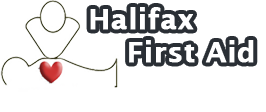
Our day to day life is going smoothly with no complications. But sometimes unfortunate events may occur that is called accidents. When we met an accident it is must to call an ambulance. In some situations first aid will be required. It will be better to be prepared to handle such cases. Many first aid training providers are eagerly waiting to train individuals rather than paramedics. Initially we have to focus on basics like handling wounds, dealing with common injuries and later we can go with life saving techniques. Medical specialists have to focus on advance training courses like monitoring, pediatrics, etc. Taking First Aid Courses will be easy for us, but it may be a bigger help for someone in their life.
Different Modules of First Aid Courses:
- Basic Aid Training for children of age group 8 to 10
- Child and Infant First Aid Courses for those working in baby care centers
- Pet First Aid Training for those who works in veterinary hospitals
- Sports Safety First Aid Training for sports person and physical fitness instructors
- Cardio-Pulmonary Resuscitation for person working in schools
Difference between CPR and First Aid:
First aid trains you how to handle the emergency situations. But CPR deals with the heart patients and for those who having respiratory problems. CPR is one of the parts of first aid. CPR is one of the lifesaving skills. Currently AED training is also added in first aid for heart attack patients.
Where to Learn First Aid Skills:
- Online courses
- Community centers are providing first aid skills
- Gymnasiums and hospitals
- Many commercial organizations provide authenticated certification courses
- Students can learn in schools and colleges
One will get trained on the following conditions once he/she attend the training program:
- Electrical shocks at work place
- Sprains and strains
- Wounds and injuries
- Burns
- Bleeding
- Heart attack and CPR
- Poisoning
- Choking
- Resuscitation
- Fractures
Benefits of First Aid Training:
- It will skilled you with basic things how to react when you meet with unfortunate situations
- You can help someone confidently
- Getting trained in legitimate organization will provide your license
- Provides relief from pain
- Saves your and others life
- Prevent injuries from future worst condition
- Can learn theoretical modules and practical skills
- Supporting in emergency situations
- It helps to progress in the particular field
- Invaluable help can be done with very less expensive training
- Can react in critical situation without fear, panic or shock
- Practical Training
First Aid Training for Employees:
It is the duty of the company to protect their employees at work
place. First aid box with a person in charge is just in case of an emergency. Most of the companies are sending a group of employees to first aid training centers in order to be safe and give safety aids in work place. Even small companies also have qualified first aiders for safety. Courses will be conducted on site or off site and flexible timings are offered. First Aid Training offers three days courses for employees’ convenience. The courses mostly focus on scenario based training with real and practical hands on. It builds confidence in employees. There are a health and safety regulations to avoid risks and hazards in the workplace. All safety equipment facilities are appropriately provided by the companies.

